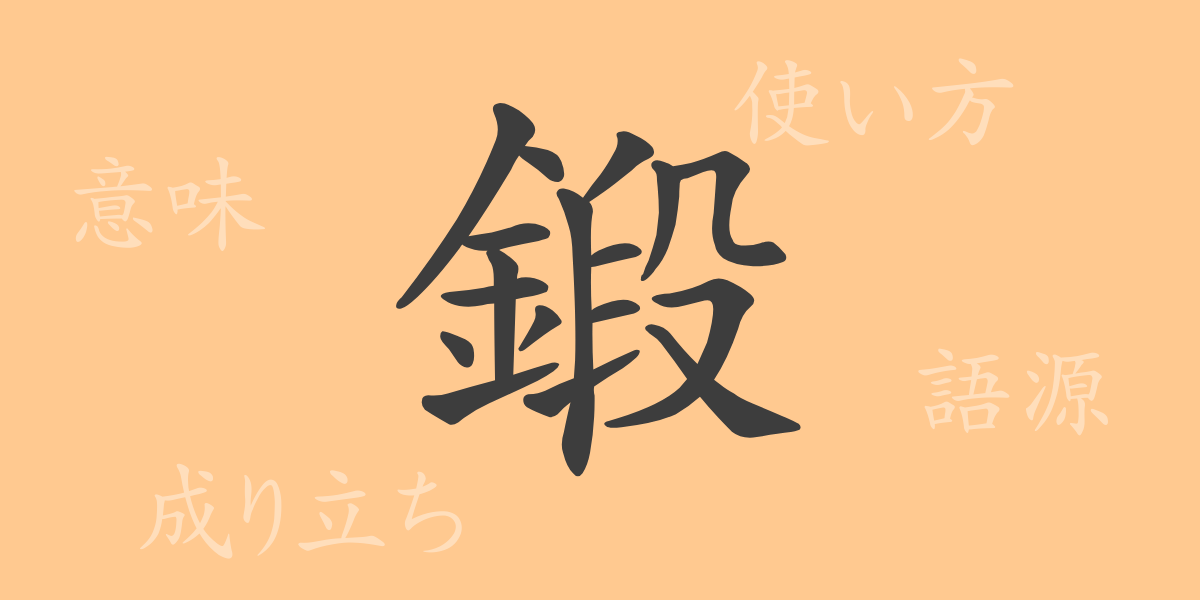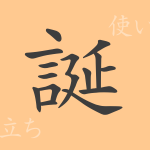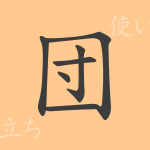Each Japanese kanji has a unique history and meaning, and ‘鍛’ (たん) (tan) is no exception. Commonly used in everyday life, this kanji symbolizes strength and spirituality, playing an integral role in our lives. This article explores the etymology of ‘鍛’, its meanings, usages, readings, stroke count, radicals, and extends to idioms and proverbs involving ‘鍛’.
Origins of ‘鍛’ (たん) (tan)
The kanji ‘鍛’ originated from ancient Chinese pictographs representing the heating and forging of metal. Initially depicting the process of metalworking, or ‘鍛冶’ (かじ) (kaji), it combines the elements of fire and metal to illustrate shaping metal through hammering. Over time, it metaphorically came to represent refining human spirit and capabilities as well.
Meaning and Usage of ‘鍛’ (たん) (tan)
‘鍛’ means to forge or temper, referring not only to the physical process of manipulating metal but also to strengthening one’s mental and physical faculties. For example, ‘鍛える’ (きたえる) (kitaeru) means to train or exercise physically, while ‘鍛錬’ (たんれん) (tanren) refers to the effort to polish one’s skills or abilities.
Readings, Stroke Count, and Radicals of ‘鍛’ (たん) (tan)
The kanji ‘鍛’ has several readings and fundamental attributes important for understanding its structure:
- Readings: On’yomi ‘タン’ (Tan), Kun’yomi ‘きたえる’ (kitaeru)
- Stroke Count: 17 strokes
- Radical: 金 (かねへん) (kanehen) meaning metal
Idioms, Phrases, and Proverbs Using ‘鍛’ (たん) (tan) and Their Meanings
There are numerous idioms and phrases that include ‘鍛’, each enriching the Japanese language with its unique connotations:
- 自己鍛錬 (じこたんれん) (jikotanren): Self-discipline through rigorous training.
- 鍛冶屋 (かじや) (kajiya): A blacksmith or a blacksmith’s workshop.
- 鍛練 (たんれん) (tanren): Enhancing skills or abilities through practice and training.
- 鍛錬不足 (たんれんぶそく) (tanrenbusoku): A lack of training or practice.
- 鍛え上げる (きたえあげる) (kitaeru ageru): To thoroughly train something to a certain level.
Summary on ‘鍛’ (たん) (tan)
The kanji ‘鍛’ originates from metalworking and symbolizes the process of developing not just material objects but also human qualities and abilities. Through ‘鍛’, we recognize the importance of daily efforts and growth. As a commonly used kanji in Japanese, ‘鍛’ reflects our own experiences and continues to inspire the way we express resilience and evolution in our language.

























